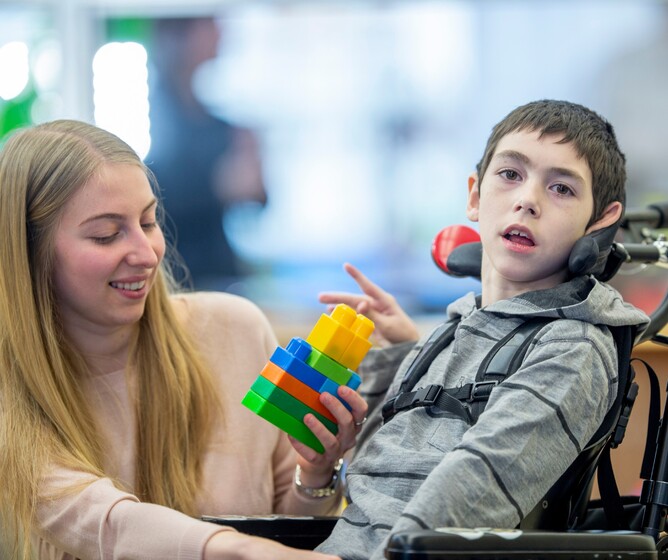Innovative Treatments and Therapies for Multiple Sclerosis: Current Trends and Developments
Multiple Sclerosis (MS) is a chronic and often disabling disease that affects the central nervous system, leading to a wide range of symptoms that can significantly impact an individual’s quality of life. Staying informed about the latest treatments and therapies is crucial for those living with MS, as advancements in medical science continually offer new hope and opportunities for better management of the disease. This blog explores current trends and innovative approaches in treating MS, providing insights into how these developments can improve outcomes for individuals with this condition.
Understanding Multiple Sclerosis
Multiple Sclerosis is an autoimmune disorder where the immune system mistakenly attacks the protective covering (myelin) of the nerves, disrupting communication between the brain and the rest of the body. Over time, this can lead to deterioration or permanent damage to the nerves themselves. Common symptoms of MS include fatigue, difficulty walking, numbness or tingling, muscle weakness, and cognitive impairments. The progression of MS can vary greatly between individuals, with some experiencing mild symptoms while others may face more severe disability. A multidisciplinary approach is essential in managing MS effectively. By combining medical treatment with supportive care, patients can achieve better symptom management and an improved quality of life.
Innovative Therapies and Approaches
Holistic Care: MS treatment should address both the physical and mental well-being of patients. Holistic care approaches recognize the interconnectedness of body and mind, incorporating therapies that focus on mental health support, stress management, and emotional resilience. By prioritizing mental well-being, patients may experience reduced stress levels, which can positively impact physical symptoms.
Rehabilitation Techniques: Rehabilitation is a key component in managing MS, aimed at improving mobility, reducing pain, and maintaining independence. Techniques such as physical therapy, occupational therapy, and speech therapy can help individuals retain their functional abilities, adapt to changes in their condition, and enhance their overall quality of life.
Lifestyle and Wellness: A healthy lifestyle is crucial in supporting overall health for those with MS. Regular exercise, balanced nutrition, and effective stress management play significant roles in reducing the impact of symptoms and slowing disease progression. Wellness programs tailored to the needs of individuals with MS can lead to better physical health and a more positive outlook on life.
Assistive Technologies: The use of assistive technologies, such as mobility aids, communication devices, and home modifications, can significantly enhance daily living for individuals with MS. These tools help maintain independence, reduce the risk of injury, and improve the overall quality of life.
Alternative Therapies: Complementary therapies like acupuncture, yoga, and mindfulness have gained popularity for their potential benefits in managing MS symptoms. While not a replacement for conventional treatment, these therapies can offer additional relief from symptoms such as pain, muscle stiffness, and stress.
Current Trends in MS Treatment
Disease-Modifying Therapies (DMTs): DMTs are medications that alter the course of MS by reducing the frequency and severity of relapses, slowing disease progression, and minimizing nerve damage. Recent advancements in DMTs have expanded treatment options, offering more effective and better-tolerated medications that can improve long-term outcomes.
Stem Cell Therapy: Emerging research into stem cell therapy shows promise as a potential treatment for MS. Stem cells may have the ability to repair damaged nervous tissue and regenerate myelin, offering hope for reversing some of the damage caused by the disease. While still in the experimental stages, this therapy could revolutionize the way MS is treated in the future.
Neuroprotective Therapies: Neuroprotective therapies aim to protect the nervous system from damage and support the repair of damaged tissues. These therapies are focused on preserving nerve function and preventing further deterioration, offering a new avenue for managing MS.
Personalized Medicine: Personalized medicine involves tailoring treatment plans based on an individual’s genetic profile and specific disease characteristics. By understanding the unique factors that influence how a person responds to treatment, healthcare providers can develop more effective, customized strategies for managing MS.
Conclusion
The landscape of Multiple Sclerosis treatment is evolving rapidly, with new therapies and approaches offering hope for better management and improved quality of life. From holistic care and rehabilitation techniques to cutting-edge developments like stem cell therapy and personalized medicine, there are more options than ever for individuals with MS. A holistic and personalized approach is essential in managing this complex disease, and staying informed about the latest trends is crucial for making informed decisions about care.
At Holistic Strength, we are dedicated to empowering individuals with MS to live their best lives. Our team of experienced healthcare professionals offers a comprehensive range of services, including rehabilitation therapy, lifestyle coaching, and alternative therapies. Contact us today to learn more about our services or to schedule a consultation.
